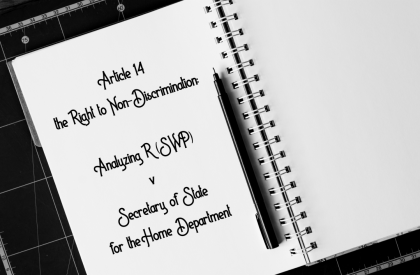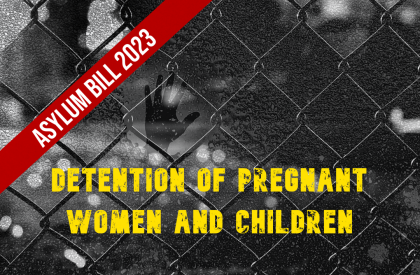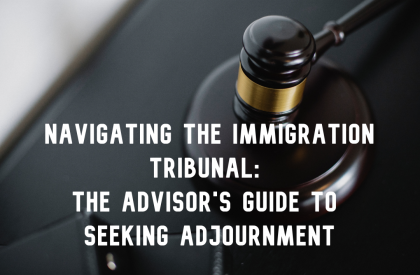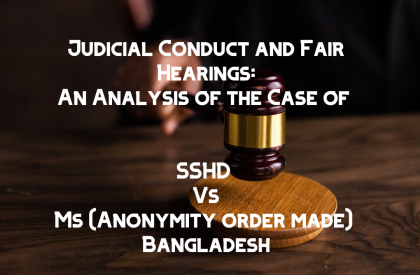Skilled Worker Visa: Your Route to Employment in the UK
The Skilled Worker Visa allows individuals from outside the UK to work for a UK-based employer in an eligible role. This visa category plays a crucial role in addressing skill shortages in key sectors across the country.
At Lawfinity Solicitors, we offer expert guidance to ensure your Skilled Worker Visa application is smooth and successful.

What Is the Skilled Worker Visa?
The Skilled Worker Visa allows non-UK nationals to work in the UK for an approved employer who holds a valid sponsor licence. This visa replaces the former Tier 2 (General) Work Visa and provides a route to settlement in the UK after 5 years.
Skilled Worker Visa Requirements
1. Eligibility Criteria
To apply for a Skilled Worker visa, you must:
- Have a valid job offer from a UK employer licensed to sponsor Skilled Worker visa applicants.
- Meet the skill level requirement (RQF Level 3 or equivalent).
- Be paid the minimum salary or the “going rate” for the job, whichever is higher.
2. Salary Requirements - Standard salary threshold: £38,700 per year or £18.62 per hour.
- New entrants, some shortage occupations, and certain health and education roles might have lower salary thresholds.
The UK Government is set to increase the salary threshold for Skilled Worker visas from the current £26,200 to £38,700 starting in April 2024. This adjustment is based on updated data from the Office for National Statistics (ONS) and reflects the 50th percentile of full-time earnings in 2023. Additionally, the “Shortage Occupation List” will be replaced by an “Immigration Salary List” (ISL), and the 20% salary discount previously available for shortage occupations will be discontinued
Healthcare and social care workers, as well as individuals in occupations tied to national payscales (e.g., certain education roles), will be exempt from the new threshold. These changes are designed to balance the UK labour market by reducing dependency on migrant workers while still addressing critical shortages in sectors like health and social care
For those currently on the Skilled Worker route, transitional measures will apply, allowing them to change sponsors, extend their visas, or settle under the existing rules without immediately meeting the higher threshold
3. English Language Requirement
You must prove your proficiency in English by:
- Passing a Home Office-approved English language test.
- Holding a degree taught in English or being from an English-speaking country.
4. Tuberculosis (TB) Test
Applicants from specific countries must provide a TB test certificate if they are staying for more than 6 months.
5. Dependent Applications
Your spouse, partner, and children can join you as dependants. They must also meet financial requirements and provide appropriate documentation.
Maintenance Funds
For the UK Skilled Worker visa, applicants must meet specific maintenance fund requirements to demonstrate they can financially support themselves upon arrival without relying on public funds. The primary applicant must show they have at least £1,270 available, held in a bank account for 28 consecutive days, ending no more than 31 days before the application submission date
Additional Requirements for Dependents:
- £285 for a dependent partner.
- £315 for the first dependent child.
- £200 for each additional child.
Exemptions:
- Employer Certification: An A-rated sponsor can certify maintenance on the Certificate of Sponsorship (CoS), meaning the applicant doesn’t need to provide personal financial evidence.
- Existing UK Residents: If the applicant has been lawfully living in the UK for at least 12 months, they are exempt from providing maintenance fund evidence
- Applicants can rely on their own funds or those of a partner (if applying together) or their employer’s certification. However, funds held in unregulated accounts or non-traditional assets like stocks or cryptocurrency are not acceptable
Can You Bring Dependants on a Skilled Worker Visa?
Yes, you can bring dependants, including:
- Your spouse, civil partner, or unmarried partner.
- Children under 18 years of age.
Each dependant will need to meet specific requirements, including financial maintenance and TB testing.
Benefits of the Skilled Worker Visa
- Pathway to Settlement: You can apply for indefinite leave to remain (ILR) after 5 years.
- Work Flexibility: Switch jobs or employers within the same visa category.
- Bring Family Members: Your family can live and work in the UK.
- Access to Healthcare and Education: Dependants can benefit from free healthcare and education.
How Lawfinity Solicitors Can Help
At Lawfinity Solicitors, we offer comprehensive support for your Skilled Worker Visa application:
- Eligibility assessment to determine if your job and salary meet the visa requirements.
- Document preparation to ensure your application is complete and accurate.
- Sponsorship advice for employers seeking to hire international workers.
- Dependants’ applications to bring your family to the UK.
Our expert team is dedicated to helping you secure your future in the UK.
Contact Us
For expert advice and assistance with your Graduate Visa application, contact Lawfinity Solicitors today. Call us on [Insert Contact Number] or fill out our online enquiry form to schedule a consultation.
Let us help you unlock your potential in the UK job market!
FAQs About the Skilled Worker Visa
- Can I extend my Graduate Visa?
No, the Graduate Visa cannot be extended. However, you may switch to other visa categories, such as the Skilled Worker Visa, if eligible. - Can I study on a Graduate Visa?
Yes, you can study, but it cannot be a course sponsored by a student sponsor. - What happens if my Graduate Visa application is refused?
You may have the right to appeal or request an administrative review. Our solicitors can assist you in challenging a refusal.
News Feeds.
Decision Are A Professional Attorney & Lawyers Services Provider Institutions. Suitable For Law Firm, Injury Law, Traffic Ticket Attorney, Legacy And More.
- January 6, 2025
Brexit’s Impact on Modern Slavery in the UK’s Hospitality Industry: An Alarming Trend
- January 6, 2025
Article 14 and the Right to Non-Discrimination: Analyzing R (SWP) v Secretary of State for the Home Department
- January 6, 2025
Detention of Pregnant Women and Children: Concerns Raised Over Proposed UK Asylum Legislation
- January 6, 2025
Navigating the Immigration Tribunal: The Advisor’s Guide to Seeking Adjournment
- January 6, 2025
The Intersection of Mental Health and Immigration Bail: Applying for Immigration Bail on Grounds of Mental Health
- January 6, 2025







